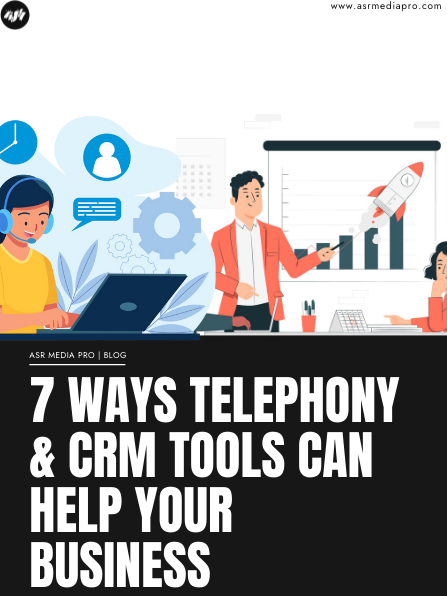
10 Crucial Features to Look for When Buying a CRM System
10 Crucial Features to Look for When Buying a CRM System As you might expect, leading CRM solutions provide a vast array of features, from
Recently, privacy concerns have gained a greater level of public and political debate. This is partially due to social media and the internet in the aftermath of the Cambridge Analytica scandal in 2018.
Social media platforms such as Twitter, Tumblr, Facebook, Telegram, Instagram, LinkedIn, and Snapchat have evolved into digital billboards for internet users.
Individuals share news, images, personal perspectives, and nearly anything else that is happening in their lives.
The volume of information shared on social media – some of it very personal – attracts viewers beyond their trusted circle of relatives and friends.
Someone, for reasons you may not be aware of, records a good deal of what you do on social media.
The government, Spambots, advertising companies, vindictive acquaintances, and, in the worst-case scenario, cybercriminals may all be interested in your personal information.
With these privacy concerns in mind, we’ve compiled a list of ways to safeguard your privacy on social media in this article.
We believe that by using the information contained in this article, you will be able to take appropriate steps to safeguard your social media privacy.
The conventional wisdom has long held that each individual is responsible for their own social media privacy.
It is believed that all you need to do is check a few boxes to upgrade your social media privacy from “weak” to “strong” and protect your online information.
In reality, it is exceedingly difficult to maintain control over your social media privacy.
This is because, even if you take every precaution to safeguard your privacy on social media, including deactivating your account, your friends and relatives will continue to share your personal information.
Even deleting your social media apps may be ineffective in this instance.
Due to social media’s obvious lack of privacy, it’s critical to safeguard your online privacy before sharing anything on any social media platform.
Here are some pointers to assist you in safeguarding your privacy on social media:
1. Read and comprehend the Privacy Statement
Every website on the internet, including social media sites, has privacy policies.
It is critical that you read and understand the privacy policies of any social media platform before signing in or creating an account.
Pay close attention to the privacy policies associated with the information you’re registering and agreeing to share when you create an account on a social media platform.
For example, what content may be shared with a third party and what content may be permanently deleted from the website.
2. Site Characteristics
Before broadcasting or sharing any messages, familiarise yourself with the social media site’s functionality.
Determine who will see your messages and whether they will be visible to only specified recipients or to all platform users.
Above all, become familiar with the social media site’s privacy settings and security vulnerabilities.
3. Modify your privacy preferences
Always check the default privacy settings for each social media platform you use.
The majority of social media platforms’ default privacy settings may allow for the sharing of your information with other online users.
By modifying the social media site’s default privacy settings, you can limit the amount of information that the site can share with other users without your knowledge.
4. Biographical Data
Many social media platforms require you to provide biographical information such as your full name, birth year, age, or address when creating an account.
Maintain secrecy about these pieces of information to limit what other social media users know about you. Such information can provide cybercriminals with sufficient data to commit fraud against you.
Consider customising the privacy settings on your social media platforms to limit the amount of personal information shared on the same platform.
5. Account Data
Consider the type of personal information you include in your social media profile carefully.
Never provide sensitive information such as your proximity to schools, political affiliation, bank account information, previous or current employer, Social Security number, or general interests.
While providing this information may appear harmless, it can be used to defraud you or serve you with irrelevant advertisements.
6. Contacts or Friends
You are under no obligation to accept a “friend or follow” request from anyone on social media, especially strangers.
Accepting friends or following friends or contacts should be done cautiously and with a clear understanding of why you are using the site.
Before accepting any follow or friend request, do some research on the person and gain an understanding of who they are, what they do, and the type of content they share (via their timeline).
7. Disable Your Location
Never forget to disable location sharing on your device while adjusting your privacy settings.
This way, you can avoid leaving reviews for locations and businesses that you frequent. By disabling your location, you will be unable to conduct Facebook, email, or phone lookups.
8. Exercise caution when uploading photos to social media.
Consider your actions before posting any photos. Uploading photos to social media platforms has been identified as a potentially dangerous social networking activity.
For instance, a simple, unnamed photograph of your child may already reveal far too much information.
By publicising your whereabouts via photographs, you, your family, or your home may become an attractive target for cybercriminals.
9. Steer clear of clickbait
No social media platform will accept liability for third-party applications.
Avoid clicking on random baits such as ‘comment below to see magic’ or ‘check which celebrity you share a birthday with.’
These are third-party applications that attempt to obtain and misuse your personal information.
As with any web-based account, you must compensate for social media’s lack of privacy by taking precautions to safeguard your privacy and account information. Several security tips are as follows:
✅Select a “strong” and secure password.
✅Use unique passwords for each of your social media accounts.
✅Change your passwords on a regular basis.
✅Avoid logging into your social media accounts via public computers or friends’ phones.
✅When using public wireless networks to access your social media accounts, exercise caution. Utilize a VPN if possible.
✅Avoid accessing your social media accounts via public or shared devices.
✅AVOID CLICKING ON SOCIAL MEDIA LINKS, INCLUDING THOSE SENT BY A FRIEND.
✅Password protect your devices to safeguard your social media and other personal information in the event they are stolen or lost.
Finally,
In the future, social media applications may be partially required to safeguard their users’ privacy and security.
However, until that time, there are steps you can take to safeguard your privacy.
By utilising a VPN, you can assist in securing your data and limiting the amount of information that companies can gather about your browsing habits.
By connecting to the internet via a VPN, you can enjoy fast and private internet access while protecting your personal social media accounts.
There are websites where you can obtain some practical tips for safeguarding your privacy on social media.

10 Crucial Features to Look for When Buying a CRM System As you might expect, leading CRM solutions provide a vast array of features, from

7 Ways Telephony and CRM Tools Can Help Your Business Technology has altered how we conduct business. Indeed, technological advancements have improved how companies conduct

This Pixel 4 Can Recognize Life-Changing Diseases Developers from all over the world are attempting to simplify our lives by incorporating numerous new and cutting-edge
